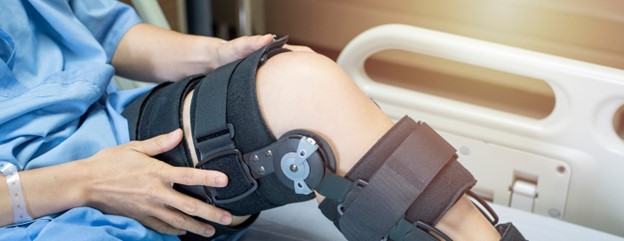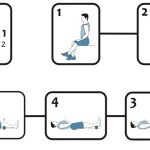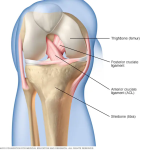The recovery process following an anterior cruciate ligament (ACL) injury is influenced by several factors, with age being a significant determinant. Different age groups experience varying recovery timelines and outcomes due to physiological differences, lifestyle demands, and rehabilitation strategies

Younger Patients (Children and Adolescents)
Younger patients, particularly those under 18, often have favorable outcomes from ACL reconstruction. This demographic benefits from several advantages:
- Faster Healing: Skeletally immature individuals tend to have better natural healing properties compared to adults. Their bodies are more adept at repairing tissues, which can lead to faster recovery times.
- Higher Return-to-Sport Rates: Younger patients are more likely to return to their pre-injury level of sports participation. Studies show that up to 80% of young athletes achieve this goal, largely due to their resilience and ability to adapt to rehabilitation programs.
- Psychological Readiness: Younger individuals generally have better psychological readiness for returning to sports, which is crucial for successful recovery. Their motivation and confidence play a significant role in overcoming the challenges of rehabilitation.
However, younger patients also face a higher risk of re-injury. Rates of ACL reinjury in this age group can range from 18% to 23%, highlighting the importance of careful rehabilitation and preventive measures.
Adult Patients
Adults typically experience a more challenging recovery due to several factors:
- Degenerative Changes: Older adults may have pre-existing joint degeneration, such as early signs of osteoarthritis. These changes can complicate recovery and affect long-term outcomes by reducing joint mobility and increasing pain.
- Lower Return-to-Sport Rates: Adults are less likely to return to their pre-injury level of sports participation compared to younger patients. This is often due to decreased physical resilience and increased family or work commitments that limit time for rehabilitation.
- Comorbidities: Older adults may have additional health issues, such as hypertension or diabetes, that can impact recovery and rehabilitation. These conditions may require adjustments in medication or treatment plans during the recovery process.
Older Adults
In older adults, ACL injuries often occur in the context of degenerative knee changes. Recovery focuses on improving daily function rather than returning to high-level sports. Key considerations include:
- Functional Goals: The objective of rehabilitation is to improve stability and facilitate daily activities, such as walking or ascending staircases, as opposed to high-impact sports.
- Joint Health: Pre-existing conditions like osteoarthritis can complicate surgical decisions and recovery. Non-surgical management may be preferred if surgery risks outweigh the benefits.
Rehabilitation Strategies by Age
Rehabilitation strategies should be tailored to individual age-related needs:
- Younger Patients: Focus on aggressive strengthening, plyometrics, and sports-specific drills to facilitate a quick return to sports.
- Adult Patients: Emphasize strengthening, flexibility, and functional exercises while considering lifestyle adjustments to manage stress on the knee.
- Older Adults: Prioritize low-impact exercises and functional training to improve daily mobility and reduce pain.
Conclusion
Age significantly influences ACL injury recovery, with younger patients generally experiencing faster and more successful returns to sports. In contrast, older adults face more challenges due to degenerative changes and comorbidities. Tailoring rehabilitation strategies to individual age-related needs is crucial for optimal outcomes. By understanding these age-specific factors, healthcare providers can develop personalized treatment plans that enhance recovery and improve long-term knee health.
For enquiries and online appointments, send a message to www.DrAyyappanVNair.com/contact
For informative videos related to Shoulder problems and their treatment options, Sports Injuries and other orthopedic conditions, visit our YouTube channel Bangalore Shoulder Institute – https://www.youtube.com/@BangaloreShoulderInstitute


